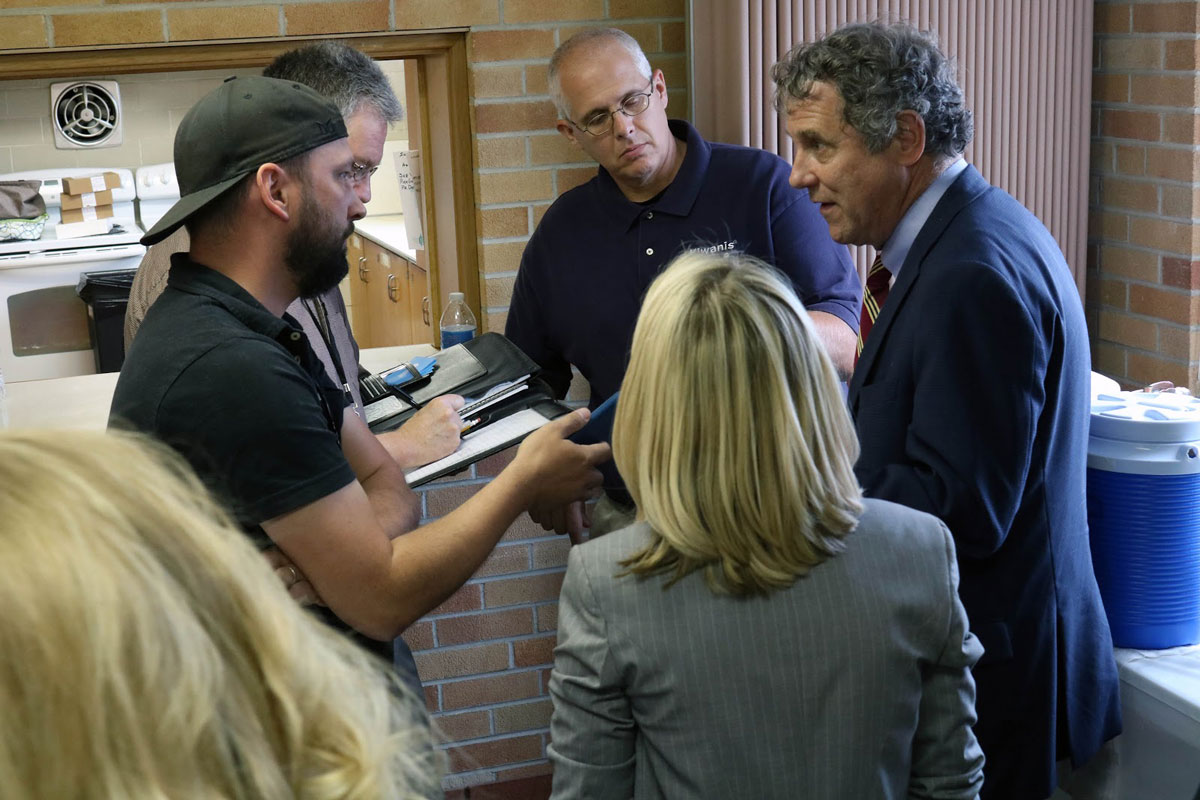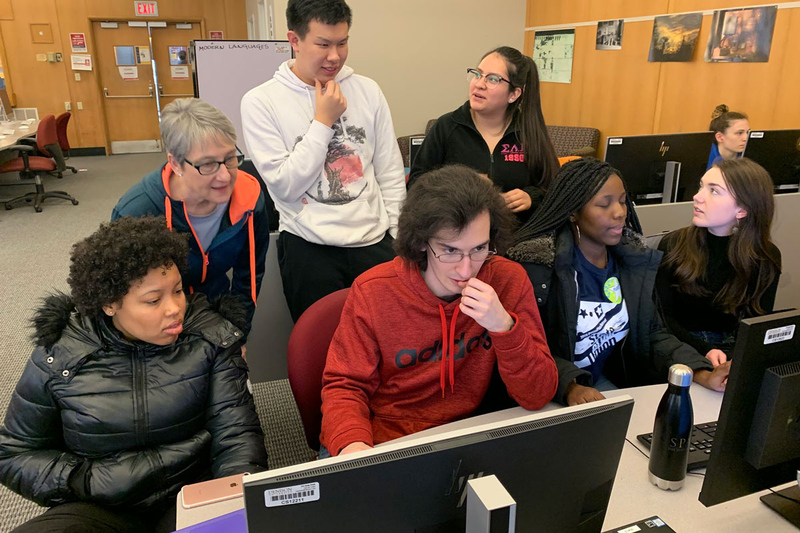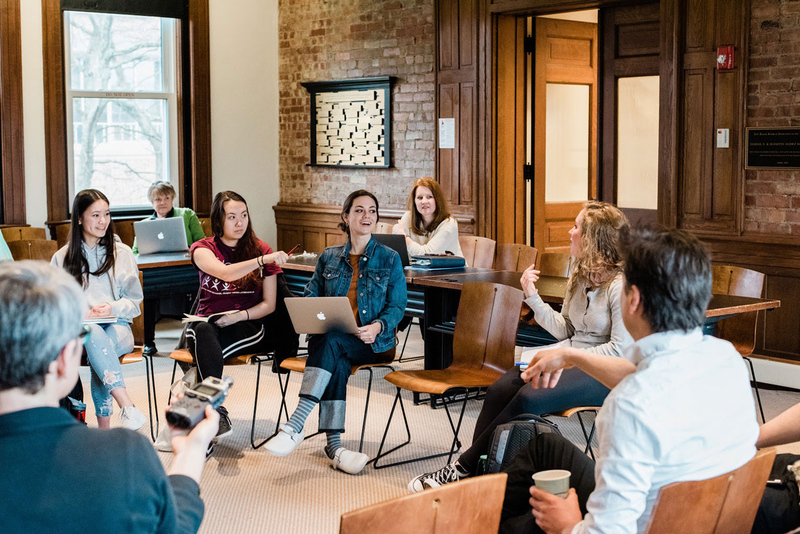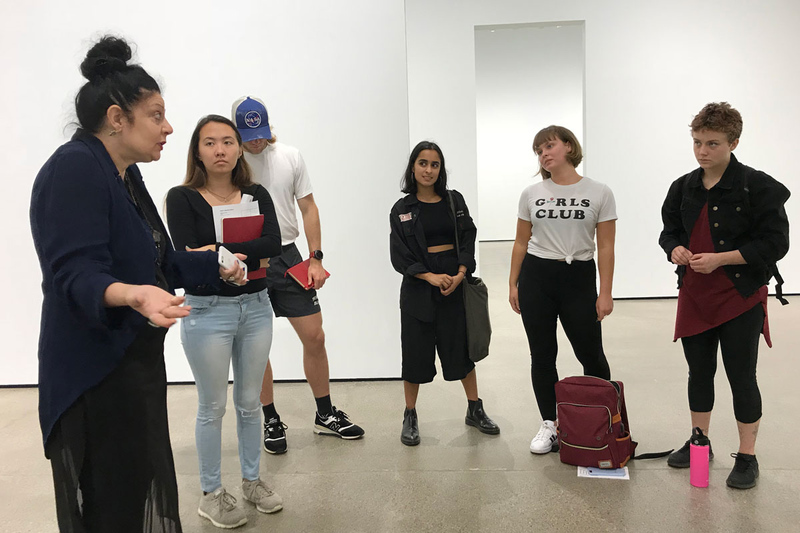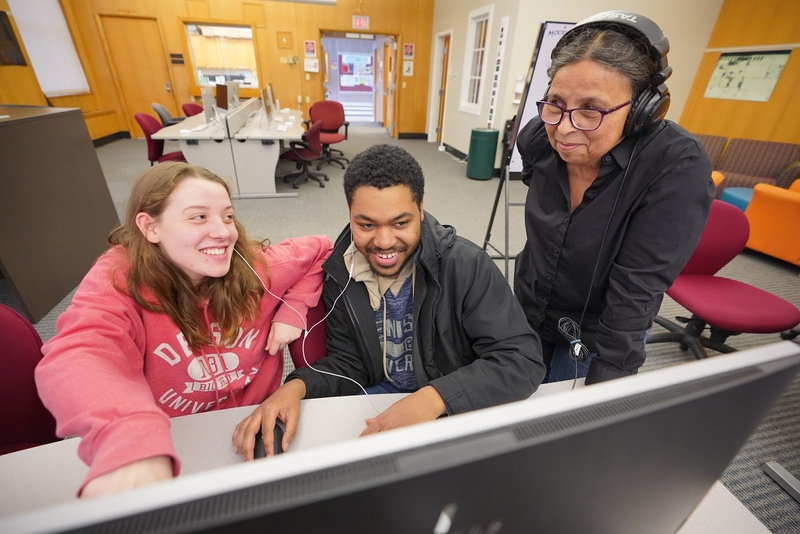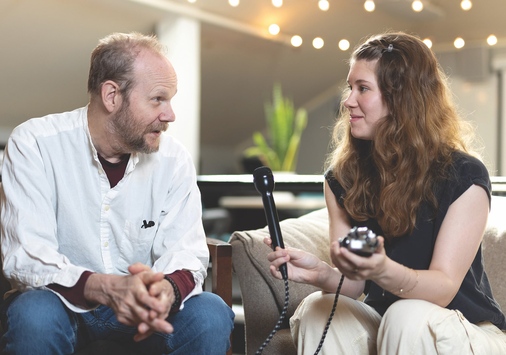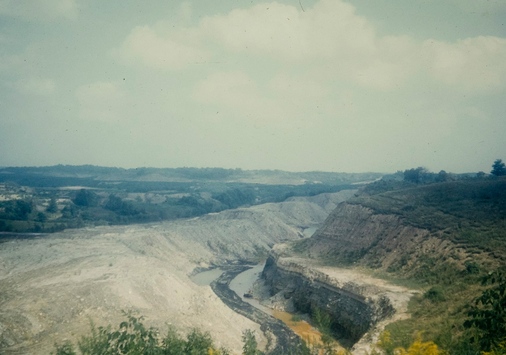About
Beck Series: Writers That Inspire
The series provides students the opportunity to hear, study with, and engage some this country’s finest writers, such as:
- Viet Thanh Nguyen
- Alison Bechdel
- Kim Edwards
- Ted Genoways
- Luke Lorentzen
- Min Jin Lee
Gaining Writing Experience in the Field
Facts. Empathy. Place. The next generation of storytellers. Through a liberal arts approach, Journalism at Denison teaches factual, narrative storytelling to students and faculty across disciplines, and in both traditional and multimedia formats, for the purpose of cultivating the next generation of empathetic reporters, writers, and citizens.
Our goal is to help students become better writers, reporters, researchers, and active citizens engaged in the burning issues of their day as well as help faculty seeking to write for broader audiences. Students who elect to be a Journalism major or minor are better equipped to answer the “so what?” of all their study and research so that the average person can connect to and understand it. Our students gain structured storytelling experience in their field and discover potential career paths along the way.
Journalism writing is a burgeoning field, driven by the changing nature of the way people read online, including the re-emergence of long-form reporting, the growing number of nonprofit news organizations, and the evolution of multimedia journalism, coupled with a surge in documentary storytelling. The popularity of narrative journalism is an indication that both writers and readers appreciate writing that combines rigorous research with compelling, story-driven nonfiction prose. We prepare students majoring in any subject to write for a wide readership across a variety of media platforms.
The World Needs Journalists
Let’s face it. America needs more journalists… journalists who are committed to communicating the facts with skill and integrity. Journalism at Denison is a liberal arts approach to journalism, and we are proud of this distinction. At the core of this is our belief that an educated and empathetic citizenry begins with good storytelling. Skilled writers come from all disciplines and, in fact, are needed to tell stories and explain complicated issues from STEM fields to the humanities. The liberal arts invites us to analyze and understand from multiple viewpoints, which connects seamlessly into doing sure-footed and well-researched reporting. Journalism students gain the ability to share information and tell stories that impart knowledge, create conversation, and even enact change in their field.
- Journalism is a way to push beyond the boundaries of personal narratives and incorporate fact-based, researched storytelling into long-form reportage, like that seen in the best writing for the last hundred years from places like The New Yorker, Esquire, and Harper’s.
- Journalism is meant to serve as an entry point for those students interested in writing for broader audiences, for taking their field of study and making the facts accessible to the everyday person through skilled storytelling. The hallmarks of such writing include literary attention to scene and storytelling, as seen in fiction and drama, but are grounded in journalistic principles of fact, research, sources, and reporting.
Journalism at Denison’s core course offerings foster solid writing and reporting instruction, while electives are continually added to remain current with popular modes of storytelling. Our recently added courses include Engaged Documentary, Writing About Science for Everyone, Contemporary Comics, Documentary Film and Media, Get Off the Hill, and Storytelling With New Media:
- Engaged Documentary: Engage your community. Write your manifesto. Make your own documentary. This is an introduction to documentary filmmaking with a focus on film criticism and the production of an original documentary film.
- Writing About Science for Everyone: In today’s political and cultural climate, it is critical to be able to write about science in a way that is compelling and relatable to the public. In this class, students create new science media articles and podcasts.
- Contemporary Comics: This Studio Art cross-listed course examines the relationship of words and pictures through the study and making of autobiographical and nonfiction comics. Placing practice in context, students explore comics history with an emphasis on contemporary cartoonists and graphic novelists as artists focused on relevant first-person narrative storytelling and comics journalism.
- Documentary Film and Media: In this class, we will address the following questions: who are the most vital documentary filmmakers? What defines this genre? What are the subjects that are particularly suited for exploration? How do documentarians define truth? Feature-length films are the central focus of the class, but we will also work on television series, radio programs, and nonfiction writing through the lens of analysis, history, and theory.
- Storytelling With New Media: Students learn to tell one story, multiple ways, in this hands-on course through podcasting, writing long-form, taking photojournalistic stills, and filming a mini-documentary, all synthesized into a portfolio piece on a multimedia platform.
- Get Off the Hill: In this course, students explore how to better connect with the community that surrounds them. Class meets in Newark, just down the road from campus, and learns from community activists and leaders while reporting and writing local stories with empathy.
